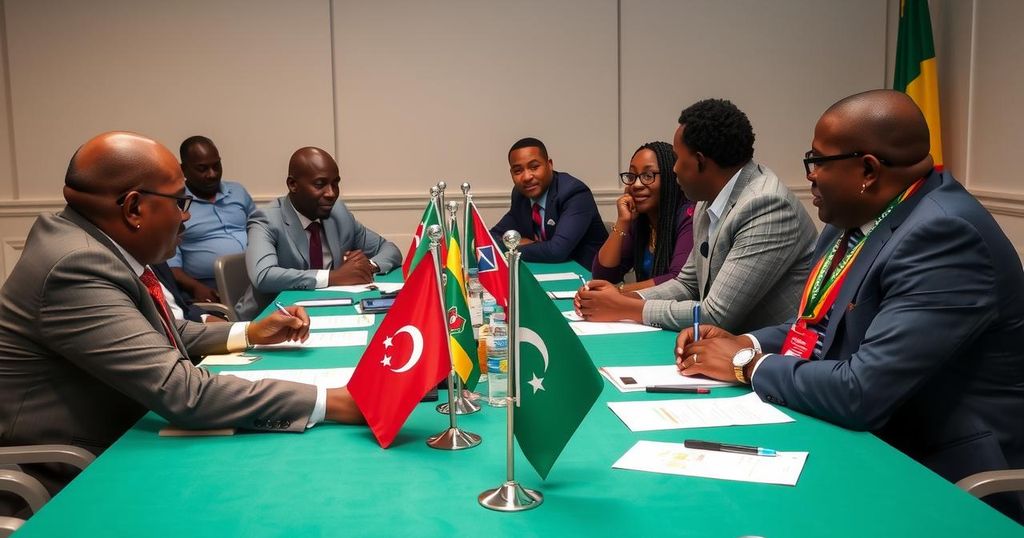Egypt, Eritrea, and Somalia are strengthening their alliance in response to rising concerns about Ethiopian influence in the Horn of Africa, especially regarding the Grand Ethiopian Renaissance Dam and Ethiopia’s maritime agreements with Somaliland. Their recent summit in Asmara led to commitments for military cooperation and aid for Somalia’s counterterrorism efforts, signaling a robust response to the geopolitical challenges they face.
Egypt is solidifying its strategic alliance with Eritrea and Somalia in light of perceived growing threats from Ethiopia. Recent developments reveal that leaders from these three nations convened in Asmara in October 2024 to enhance military collaboration and foster regional stability. The summit resulted in commitments to support Somalia’s counterterrorism initiatives, with Egypt agreeing to send troops within the framework of the African Union (AU) mission; a clear maneuver to counter Ethiopia’s increasing influence in the Horn of Africa.
This trilateral alliance arises from Egypt’s ongoing disputes with Ethiopia concerning the Grand Ethiopian Renaissance Dam (GERD), which Cairo regards as a significant threat to its water security. The situation is further complicated by Ethiopia’s memorandum of understanding with Somaliland, facilitating maritime access and exacerbating tensions, thereby unifying Somalia closer to Egypt and Eritrea.
Analysts view this summit as a decisive measure by Egypt to assert its influence in the region amidst escalating tensions over Nile water rights and access to the Red Sea. Many observers have characterized this alliance as an “axis against Ethiopia,” reflecting the complex geopolitical dynamics at play in the Horn of Africa.
Moreover, Ethiopia’s eagerness to regain maritime access through its deal with Somaliland has stirred concerns in Somalia about territorial integrity, prompting Egypt and Eritrea to intensify military and strategic cooperation with Mogadishu. Egypt’s strategy encompasses both diplomatic engagement and military assistance, including arms supplies to Somalia and the formation of a joint foreign ministers’ committee to oversee various fields of strategic cooperation.
As tensions continue to mount, this developing alliance may redefine the region’s power dynamics, raising the likelihood of heightened military and diplomatic confrontations. The forthcoming months are expected to be critical in assessing how this strategic partnership may impact the ongoing disputes regarding Nile and Red Sea access.
The geopolitical landscape in the Horn of Africa is characterized by historical tensions, particularly among Egypt, Ethiopia, and Somalia. Central to these tensions is the Grand Ethiopian Renaissance Dam (GERD), which Egypt fears will diminish its share of Nile water, a resource vital for its sustenance. Ethiopia’s recent agreements with regional entities, such as Somaliland, have exacerbated these fears and shifted alliances in the region. This backdrop provides insight into the strategic meeting involving the leaders of Egypt, Eritrea, and Somalia, aiming to fortify military alliances against what they perceive as increased Ethiopian encroachment in their affairs.
In conclusion, the strengthening of the alliance between Egypt, Eritrea, and Somalia represents a significant shift in the geopolitical context of the Horn of Africa. The measures undertaken at the Asmara summit signify a collective response to perceived threats from Ethiopia, particularly concerning control over vital water resources and maritime routes. The implications of this trilateral cooperation may lead to altered power balances and heightened tensions in the coming months as these nations confront the complexities of regional diplomacy and security.
Original Source: www.garoweonline.com






